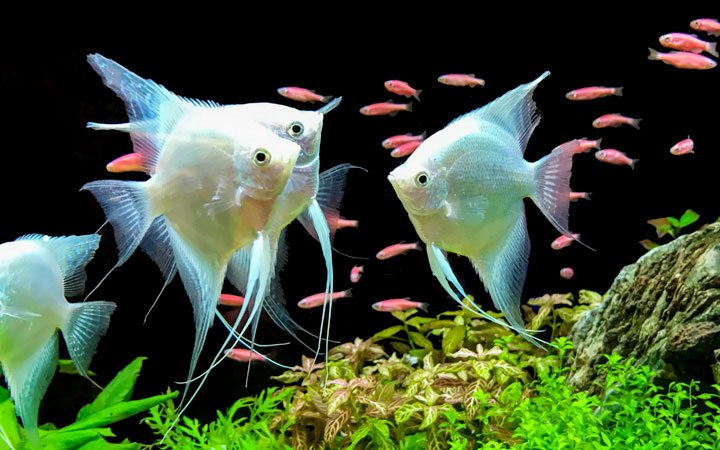
Keeping angelfish can be a fun and rewarding hobby. However, it is also a good idea to know what kind of care is required to keep these fish healthy and happy. Angelfish are very territorial fish, and aggressiveness can be a problem. If you notice your angelfish becoming territorial, you should take steps to rectify the problem.
The first step in preventing aggression is to ensure your angelfish have plenty of space. You need to keep a minimum of 10 gallons of water in each angelfish tank. If you have more than one angelfish, you will need a much larger tank. Angelfish will need space to roam and lay their eggs. Also, your fish should have a proper diet to keep them healthy. Underfeeding can result in aggression and sick fish.
Angelfish have hierarchies and will often compete for resources, including food and space. Their aggressive nature can help them assert their dominance. However, aggression isn't always a good thing, and can harm your angelfish as well as other fish in the tank.
The most obvious way to keep an angelfish happy is to provide them with plenty of space and food. You can also help reduce aggression by changing the tank environment, or adding a floating object. Angelfish will often hide in places where they can relax. This can reduce aggression and prevent the ominous, most obvious - fighting.
Another thing to do is to introduce new decorations and plants. If you do this, do so carefully, as angelfish can be confused by the addition of new objects. A change in water parameters can also disrupt their established hierarchy in the tank. Keeping your angelfish in a large tank will keep them happy and keep them from being overly aggressive. If you can't manage this, it may be time to relocate your fish to a new tank.
The most important rule of thumb when keeping angelfish is to never keep them in a small tank. This is because smaller tanks increase aggression and stress. You can prevent this by keeping fewer fish in your tank. Keeping a small aquarium can also prevent your angelfish from being able to see other fish in the tank.
Keeping angelfish in a large tank is also a good idea, but you must ensure it is clean and well maintained. It is also important to monitor your fish regularly to ensure they are healthy. Angelfish have a wide range of traits, and if you don't know how to handle them, you could end up with a fish that is too aggressive for your liking.
Aggressiveness is often difficult to detect. A good way to see what is going on is to monitor the angelfish's activity and feed them well. The best way to keep them calm is to provide them with a good quality formula specifically designed for angelfish. They also need a varied diet. A good quality formula should include ingredients such as fish, krill, algae, and other animals.
